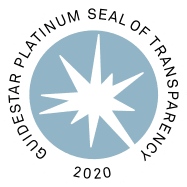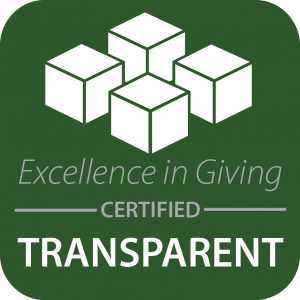Piotr Markiełaŭ is a distinctive figure at protests in Belarus against an election seen as rigged. He’s a “veteran” protestor who campaigned for years and was arrested four times under Lukashenko’s regime.
The last time Markiełaŭ was arrested was on July 29th, 2020, when he supported the mother and the bride of a political prisoner, Dmitriy Furmanov. Dmitry’s family announced the hunger strike to demand Dmitriy’s release. Piotr came to interview and support Dmitriy’s family and was immediately detained.
For 24 hours since Markiełaŭ’s arrest, law enforcement officials refused to disclose his whereabouts to his parents. Later on July 30th, he had a trial over Skype. Markiełaŭ was sentenced to 12 days of administrative arrest for violating the rules of conduct of public gatherings.
Due to the coronavirus pandemic, he was denied meetings with his lawyer. Until his release, it was unknown what happened to him in prison. He was released the day after the elections, on August 10th.
Piotr Markiełaŭ is one of many. Even before the elections, from May through August, police had detained people who gathered peacefully in a variety of settings in Minsk. They also arrested and beat journalists covering these events. At least 195 people were detained from May 6 through August 1.
Many of those released from detention have shared their stories with the media, shedding a light on the horrifying details of their experience in detention centers and police vans.
I recently interviewed Piotr Markiełaŭ over Skype to bring forth his story. Due to the lack of a stable internet connection, our Skype call was interrupted multiple times. He had to use an LTE hotspot from his phone.
Like him, his room was no-nonsense, yet welcoming. He was wearing a black T-shirt which read: Peace, Love, Liberty. His room was filled with shelves of piled books and the walls were full of posters promoting freedom, immediately making it clear that activism is an essential part of his life. Piotr had shaved his long dark hair the previous day. “It was too easy for the police to recognize me,” he said.
Here is what we discussed during the interview.
MG: How did your activism begin?
PM: I joined the freedom movement at a very young age. I was 18 and all I wanted for Belarus was freedom. I wanted Lukashenko to leave and Belarus to become free of arbitrary detentions and violence. I wanted to see Belarus enforce laws and justice just like any other developed European country has already done.
In 2013, I attended an educational event covering the freedom movement and decided to join them. The freedom movement was founded by the most popular presidential candidate during the election of 2006.
In 2014, I ran as a candidate in the local election. I had a political campaign solely based on political satire. The idea behind it was to mock the electoral system of Belarus because it is fake and the local governments are very weak.
MG: Is this when you first experienced political oppression?
PM: No, it all started in 2017. I was a volunteer of human rights – I was volunteering as a citizen observer at a rally which, by the way, was legal. There was a group of anarchists wearing black masks and banners. At that time they were the most oppressed group in Belarus and were often arbitrarily arrested and sent to prison for no reason.
At first, they were just a part of the rally, but later they separated from it, and then just left. I followed them along on a single trolley to provide coverage and see if their departure was going to be peaceful. If something happened, I could have been a witness and could have reported it.
Suddenly, the bus got blocked by mini buses with no license plates. Armed people rushed into the trolley bus forcefully opening the doors while using gas, and they started dragging people out. They took them to the police station.
I was accused of wearing a mask that is not allowed at protests here. Alongside this false accusation, I was also charged with resisting my detention. Even though there were multiple forms of evidence presented in the court which proved I was neither wearing a mask nor resisting detention, I still got sentenced to 12 days of administrative arrest.
The first arrest was by far the best. We got food sent in by our relatives. They even allowed books, pencils, and sudokus. It was relatively soft and humane compared to what is going on now. Then I saw “something” emerge that has recently turned into a concentration camp.
MG: What changed after the first arrest?
PM: The second arrest happened either in November or October of 2019, I don’t remember. I was sentenced to 12 days of arrest after asking for a vote recount. I witnessed election fraud while observing the elections.
This second arrest was executed under the charge of “hooliganism,” and resisting detention. The conditions worsened after my first arrest. They even denied a lawyer the right to visit me for the first five or six days. They allowed books at that time, but during my last arrest, they even prohibited papers and pens. They left the lights on all the time. They took away the mattresses so people would have nothing to sit on.
The third arrest happened in May earlier this year. Markiełaŭ was accused of hooliganism and disobedience and sentenced to 10 days of administrative arrest. He got detained at the courthouse in Minsk while awaiting a trial for his friends who marched with a coffin during a military parade on Victory Day.
Piotr Markielau was released on May 21st. Shortly after, Belarusian police detained him again without any explanation, took him back to the police station, and then released him after a few hours. This is how he previously described his experience:
“They never turned on the night lamps in the cell and kept the bright daytime lamps on. I was bitten and my clothes were covered in body lice. Three out of the ten nights they woke me up, and forced me to get out of bed every two hours. During the day, they would take away the mattresses and prohibit us from laying down or even sitting on the bed (which was basically a metal grid without a mattress).
They didn’t allow books, newspapers, pencils, or paper inside of the cell and refused to pass letters and postcards. Once they pushed me in a “walking yard” (a 5×5 meter in size roofless cell covered with concrete) with a single T-shirt on a cold night. Another day after a “walk,” I found puddles of bleach in my cell — my eyes kept watering and I kept sneezing.
Several times they threatened to bind me, put me in solitary confinement, or beat me up. During these ten days, I lived with three homeless people who were facing alcohol-addiction and criminal charges.”
MG: Clearly, the purpose of such a harsh crackdown on peaceful protests was conducted to provoke terror and fear in activists, and kill any desire to come out onto the streets.
PM: Yes, during my last arrest, they even made sure to overcrowd the prison cell, hence some of us had to sleep on the bench. These actions served only one aim – to worsen the conditions and make them unbearable for the detained people. Even though what I experienced is nothing compared to what others had to experience.
MG: However, on the contrary, violence has made the state a common enemy, uniting Belarusians to stand up against the abuse of power, and even apolitical citizens went up against repressive regime.
PM: For four days, from August 10th through the 14th, massive tortures took place.. Now people are disappearing again. There are reports that people who work for the state and refused to participate in faking the election, refused to file an appeal and then suddenly disappeared. We already have two confirmed deaths (confirmed by the Ministry of Interior Affairs). One of them refused to sign a fake election protocol, after which he disappeared, and today he was found dead. They are not opposition activists, they are just ordinary people who refused to lie,” said Markiełaŭ.
MG: A lot of arrested people have been transported by ambulance from the detention centers directly to the hospitals.
PM: Yes, I recently posted a story on Facebook about a friend of mine from the libertarian movement of Belarus who was beaten severely. After being beaten, he was brought to a hospital, where he had surgery on his head. He is alive and okay but feeling terrible since he can’t talk and has to wear a diaper.
Getting arrested while demanding the release of political prisoners, and again while protesting election fraud, has forced Piotr to pay many fines and sacrifice over a month cumulatively in prison. But he’s undeterred.
Piotr Markielau is 25 years old. He’s currently a member of the international pro-liberty network Students For Liberty. He studied theoretical physics at Belarusian State University and was twice expelled in connection to his political position. For his activities, Piotr was arrested for 52 days in total. Yet he continues his fight for freedom under the constant threat of getting arrested again.
If you’d like to support students like Piotr, consider making an investment in liberty today by clicking on the button below.

















